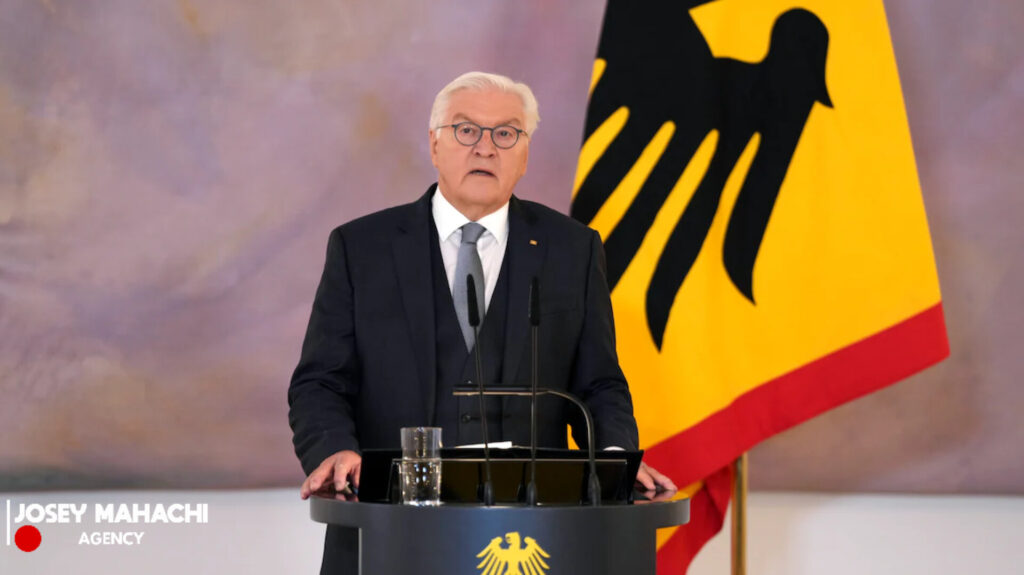By : Lloyd Mahachi
German President Frank-Walter Steinmeier has dissolved the Bundestag, setting the stage for a national election on February 23, 2025.
The move follows the collapse of Chancellor Olaf Scholz’s governing coalition, which lost a confidence vote on December 16. President Steinmeier stated that dissolving parliament was necessary due to the lack of agreement among political parties on forming a stable majority government.
The coalition’s downfall began with a heated dispute over plans to revitalize Germany’s stagnant economy, culminating in Scholz firing his finance minister on November 6. Since then, Scholz has led a minority government, but efforts to secure parliamentary stability have failed, prompting the call for new elections.
“Stability is crucial, especially in challenging times,” Steinmeier emphasized, underscoring the importance of fresh elections to restore confidence in governance.
The campaign is already gaining momentum. Polls show Scholz’s Social Democrats trailing the conservative opposition Union bloc, led by Friedrich Merz, who is seen as the likely next chancellor. Vice Chancellor Robert Habeck of the Greens has also entered the race, though his party lags further behind.
Key election issues include immigration policy, economic recovery, and continued support for Ukraine in its conflict with Russia. The far-right Alternative for Germany (AfD) is polling strongly but remains politically isolated, with no other parties willing to work with them.
Germany’s proportional electoral system typically results in coalition governments, and polls indicate no single party will achieve an outright majority. This means post-election negotiations to form a government could stretch on for weeks.
This will be only the fourth time since World War II that the Bundestag has been dissolved early, marking a critical moment in Germany’s political history. The outcome will shape the country’s direction on domestic and international issues, including its leadership within the European Union.
As the February election approaches, all eyes are on Germany, with voters facing decisions that will define the nation’s future.
Editor : Josephine Mahachi

